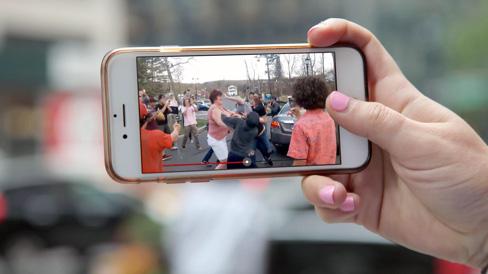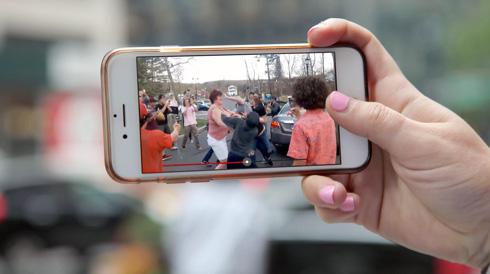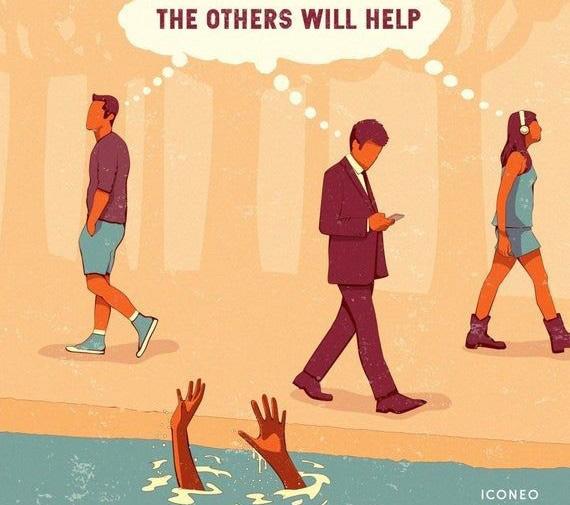
4 minute read
Will the ‘bystander effect’ ever be a thing of the past? Katie Sexton
Will the ‘bystander effect’ ever be a thing of the past?
Katie Sexton Upper Sixth
The term ‘bystander effect’ is a psychological theory that states that an individual’s likelihood of helping decreases when passive bystanders are present in an emergency. The implications for this theory have been widely studied by a variety of researchers but initial interest in this phenomenon arose after the brutal murder of Kitty Genovese in 1964. Through a series of experiments in the 1960s and 1970s, the ‘bystander effect’ has become more widely understood, however, is it still present today?
On 13th March 1964, Kitty Genovese was arriving home from work in the middle of the night when she was brutally stabbed to death by Winston Moseley. It was reported that 38 bystanders watched or heard the attack occur but instead relied on others to intervene or call the police. Therefore, nobody helped or called the police to prevent her death, and this sparked much research in psychology into the nature of helping behaviour.
Latane and Darley (1970) identified three different psychological processes that may prevent a bystander from helping a person in distress. The first is ‘diffusion It is believed that the ‘bystander effect’ is of responsibility’ which refers to the seen on a societal and national level with tendency to divide subjectively the personal vaccinations for Covid-19, as people are responsibility to help, by the number of “holding off” on being vaccinated because bystanders present. of concerns over a new The larger the size of the group, the less 38 bystanders vaccine technology, a rushed process, and likely bystanders are to watched or heard anxieties over unknown intervene in emergency situations as they the attack. side effects. Therefore, people are preferring feel less personally to take a wait-and-see responsible. The second is ‘evaluation approach in the hope of allowing more apprehension’ which is the fear of being time to clarify potential side effects. The publicly judged, and the third is ‘pluralistic individual is willing to wait, hoping that ignorance’ where people tend to rely on others will step in. Meanwhile the country the overt reactions of others when defining is suffering through the worst public health an ambiguous situation. More recently emergency of the last century. in 2019, Blagg devised the cost-benefit analysis. Here, bystanders weigh the costs Another example is the present issue of and benefits of helping the victim and global warming. Global activists claim justify their decision based on which course that the ‘bystander effect’ can explain of action will provide the best outcome inaction towards global warming. The for themselves. world population is over 7 billion and climate change is a global-scale issue Despite research into the ‘bystander so diffusion of responsibility keeps effect’ first becoming apparent in the late people inactive due to the expectation 1900s it is still seen in the present day, that other people will act. Pluralistic particularly during the Covid-19 pandemic. ignorance also relates to global warming

as people rely on public reactions. If no an array of screens. In 2017, a teenage one reacts, people assume that no one girl was sexually assaulted by a group perceives the situation as critical, so they of men. The act was broadcasted on do not consider it as an “emergency”. Facebook Live, accumulating over 40 Likewise, with evaluation viewers, yet not a apprehension, many people do not know how to live more sustainably [T]he ‘bystander effect’ can single call to the police was made. In the same year, a so they take examples explain inaction man was dragged from others around them. People do not want to be seen doing towards global warming. off a United Airlines flight for refusing to give up his seat something “out of the and rather than norm” so they observe instead of taking intervening to help, the passengers action themselves. When adapting these recorded the incident on their suggestions to global warming, it could phones. This is the sad reality of the be that people are more likely to act modern-day manifestation of the when they understand the urgency of ‘bystander effect.’ the situation, when the consequences of global warming are personally relevant to Therefore, it is clear that the them, and when they know what they can ‘bystander effect’ is not a thing actually do themselves to help. of the past. Progress with current “emergency situations” such as Finally, the ‘bystander effect’ continues to the Covid-19 pandemic and global be a pervasive issue as social media means warming are hindered by people’s that we witness emergencies from behind unwillingness to “step-up” and do

Kitty Genovese
their part to help due to the over-reliance on others. The impact of social media has negative consequences as it is now more important to record situations for publicity, rather than assist people who are in need. Is it possible that the ‘bystander effect’ has gotten worse since the 1900s? Or could it be that society has become so selfish that helping other people is only done to benefit oneself?











